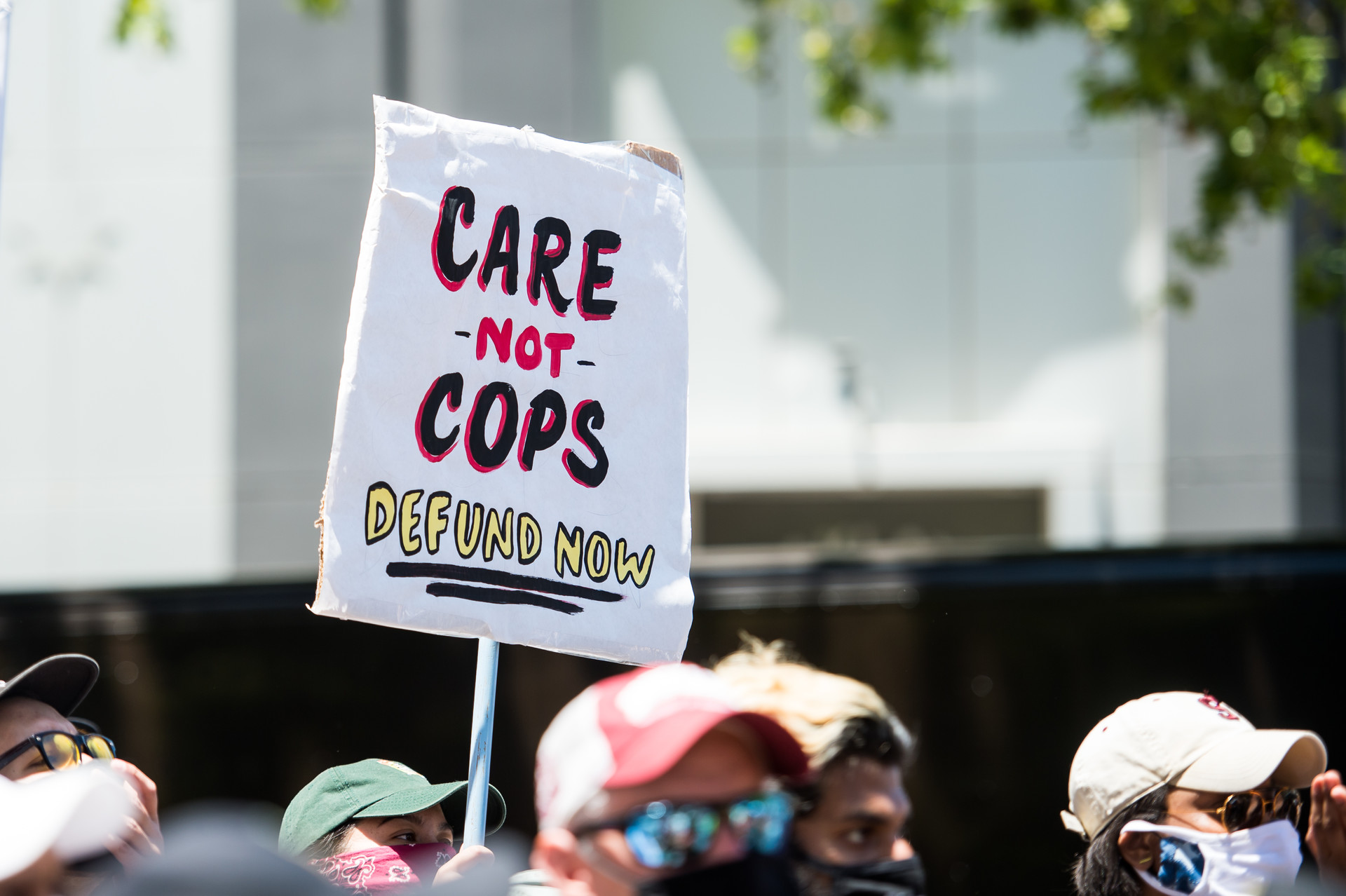Law enforcement and police involvement in involuntary psychiatric commitments have been steadily increasing, which is concerning considering the role that racial bias plays in involuntary commitment. Identifying and implementing approaches to eliminating law enforcement involvement in mental health crises and involuntary commitment is key to racially just and ethical care of those in crisis.
Marvin Swartz, Professor in Psychiatry and Behavioral Sciences at Duke University, writes:
“When law enforcement officers are the first responders in a large proportion of mental health crises, something has badly gone awry. And, as recently documented by the Treatment Advocacy Center, law enforcement members spend considerable time in commitment transport. When clinicians involuntarily commit patients in order to obtain cheap and secure transportation by law enforcement, racial justice is implicitly sacrificed on the altar of cost containment and defensive medicine.”

Systemic racism is embedded in mental health treatment and law enforcement. Racial bias has been demonstrated to influence the diagnoses of schizophrenia and substance addiction.
Racially marginalized individuals, particularly Black people, are more likely to become involved with mental health services through law enforcement and involuntary commitment than White people. This disproportionate care results from a lack of mental health training and education in law enforcement, racial discrimination, stigma, poverty, and lack of access to healthcare insurance.
Despite their minimal training in mental health, police are oftentimes the first responders in mental health crises. The lack of appropriate training and education coupled with racial discrimination often results in police-sanctioned violence while attending mental health crises, particularly those involving persons of color. This raises questions about how we can identify and utilize approaches to mental health crises that limit law enforcement involvement and allow for a humane way of treating persons in crisis.
While civil or involuntary commitment procedures are outside of the criminal justice system’s purview, there remains a reliance on law enforcement officials to transport individuals who are being involuntarily committed. This reliance is a major issue, as officers are being involved in situations that they lack the proper training to handle appropriately.
Reliance on police officers for transportation places undertrained law enforcement officers to attend to individuals in crises that they have not been taught how to manage. Further, lengthy waits for commitment evaluations on top of transport time places an additional burden on police officers who are already overtaxed.
Swartz points to several crisis interventions that limit the involvement of law enforcement. Mobile crisis teams are one solution, as they can send trained, outreach crisis teams to assist with mental health crises rather than law enforcement, only resorting to them as a last effort.
Peer support programs also present as another alternative, as they employ individuals with lived experience of mental health issues who can assist with resolving crises. Moreover, co-response approaches to mental health crises involve police officers and mental health workers collaborating to de-escalate the situation and reduce any need for further law enforcement involvement.
Another potential solution is having mental health professionals transport individuals to the hospital or using telehealth and conducting commitment hearings virtually to avoid law enforcement involvement. Others have called for anti-racist approaches to mental health care through cultural awareness, humanistic approaches, and treatment approaches that directly target racism.
Overall, identifying and implementing approaches to crisis intervention and involuntary commitment that involves trained mental health professionals and reducing untrained police officers’ involvement is crucial for adopting a way of addressing those in crisis with compassion and humanity while attending to racial justice.
****
Swartz, M. S. (2020). The urgency of racial justice and reducing law enforcement involvement in involuntary civil commitment. Psychiatric Services, 71(12), 1211. DOI: 10.1176/appi.ps.711202 (link)















Perhaps psychiatry could simply take a few security guards with them, plus a big needle and drive to the call instead of the cops. I mean after all, that is the ultimate treatment that awaits distressed calls. If you don’t get shot by cops, you will be physically assaulted by force and chemicals. It’s all warfare no matter how you turn it. The idea is not to bring someone to safety. Cops indeed are not “MH” workers, but neither are the “MH” employees.
It has NOTHING to do with “MH”. NOTHING.
People really need to be educated early about what awaits them should they ever be in crisis and that it is not safe to have a crisis while being around most people. Teenagers should definitely be spoken to about this. Most teens think that someone will soothe them when reaching out or exploding. They cannot see into the future, and not having experienced the MH system, have no clue as to the purpose of it.
If we want to keep kids safe, perhaps in schools they should be taught the truth. Life skills on how to have safe eruptions, safe emotional outbursts or explosions or expressions.
Report comment
I’d expect more compassion and humanity from the average cop over the average psychiatrist. Less “mental health training” will make it more likely they understand something as a normal emotional reaction than as a magic mental illness.
Involuntary commitments are a crime against humanity. They need to stop, not be done by different persons.
Report comment
Funnily enough there people in the UK who say the police show more compassion than MH services.
Report comment
I’ve seen some amazing work from certain police officers, certainly worthy of the best of the best of the “mental health” industry.
Report comment
UK (and most other countries) cops’ training is less gun focused than USA cops’ training. THey get a certain amount of “political correctness” and social skills training to de-escalate situations without weapons. (of course, guns per capita in the UK public are admittedly much less)
I’d much rather be confronted with a UK cop than an American – or even Australian – one.
Report comment
Removed for moderation
Report comment
Well the problem can be taken care of by banning involuntary treatment! It’s not legal at the international level so why is it continuing to happen???
Report comment
Good to see you, Four Lights. You ok?
Report comment
Psychiatry is a major racial justice issue.
Report comment
I agree with others here, involuntary treatment should be illegal. Especially since it’s being used for illegal purposes, like systemically covering up malpractice and child abuse.
Report comment
Why not help, rather than hurt and exploit people who experience distress? You can’t really make the argument that the fact that Black people are more likely to be locked up in psychiatric “hospitals” and be labeled schizophrenic than White people is an expression of racism without recognizing that such incarceration and labeling is a form of punishment and dehumanization. If mental “hospitals” and psychiatric labels and drugs were actually healing, everyone would want to be locked up.
It doesn’t really matter whether it’s the police or mental health professionals forcing and deceiving people into the life of a mental patient. The fact is that standard “medical” practice in the industry is highly destructive, rather than healing. There seems to be a tacit admission of that in this essay.
Report comment